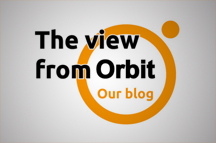 Last year witnessed something of a political whirlwind, with elections to the Scottish Parliament, the EU referendum, and the small matter of the election of Donald J. Trump as US President. This year will see Scotland go to the polls yet again. However, this time we will be focused on more mundane, bread and butter issues at the council elections.
Last year witnessed something of a political whirlwind, with elections to the Scottish Parliament, the EU referendum, and the small matter of the election of Donald J. Trump as US President. This year will see Scotland go to the polls yet again. However, this time we will be focused on more mundane, bread and butter issues at the council elections.
Councils play a major role across a huge range of local services such as schools, social work and rubbish collections. Those issues that impact on our day-to-day lives. And elections to Scotland’s 32 councils will take place on 4th May, with all of the 1,223 seats up for grabs.
At the last council elections in 2012 Labour and the SNP weren’t that far apart, with the SNP securing 425 to Labour’s 394 councillors, on 32% and 31% of the vote respectively.
However, Labour still holds the whip hand in Scotland’s town halls, and in central and southern Scotland Labour is part of the administration in all but five councils (Argyll and Bute, Scottish Borders, East Ayrshire, South Ayrshire and Midlothian).
In the northern half of Scotland the picture is much more mixed. The SNP enjoys a powerbase in Tayside with overall majorities in Dundee and Angus. Traditionally independents play a significant role in parts of the Highlands and islands and some rural areas.
 Top targets for the SNP this time include some of Labour’s fortresses such as Glasgow and North Lanarkshire, where Labour has overall majorities.
Top targets for the SNP this time include some of Labour’s fortresses such as Glasgow and North Lanarkshire, where Labour has overall majorities.
The party will also be looking to regain control of councils including Renfrewshire and West Dunbartonshire where Labour has been in charge since 2012.
As readers will be aware, the landscape has changed dramatically since 2012, with Scottish politics becoming polarised around the issues of independence and the Union.
With the surge in SNP membership after the independence referendum of 2014, and the party taking 56 out of 59 Westminster seats – many in Labour strongholds – optimism will be high in SNP ranks. And while the Scottish Conservatives secured 115 councillors on 13% of the vote in 2012, expect that number to increase with the party now being the second party at Holyrood.
Labour is anticipated to be the loser over the piece. Recent polling indicates that the party faces near electoral wipe-out in Scotland, with it predicted to secure only 15% of the vote, ten points behind the Tories on 25% and an astonishing 30 points behind the SNP on 45%.
Meanwhile the Liberal Democrats will be hoping to recover from their poor 2012 performance, and the Scottish Greens will look to build on their handful of councillors.
It should be noted however that that there is no guarantee that the party with the largest number of councillors in an authority will form the administration, although this is normally the case. At these elections it will be interesting to see if those parties supporting keeping Scotland in the UK come together to keep the SNP out of power in town halls.
The election will also be interesting in terms of seeing whether, given a re-engagement with politics, individuals will be turning out and voting on the issue of bin collections, schooling and potholes, or will follow the new tribal instincts of nationalism versus unionism.
The fact that councils are able to raise council tax by 3% following years of a freeze may have an impact on the electorate, or it may be used by others, as is often the case, to deliver a mid-term verdict on the Scottish Government.
Those who are strong advocates of local democracy will be hoping that the focus will be on local services and how these are paid for, rather than what is happening at Westminster or Holyrood.













